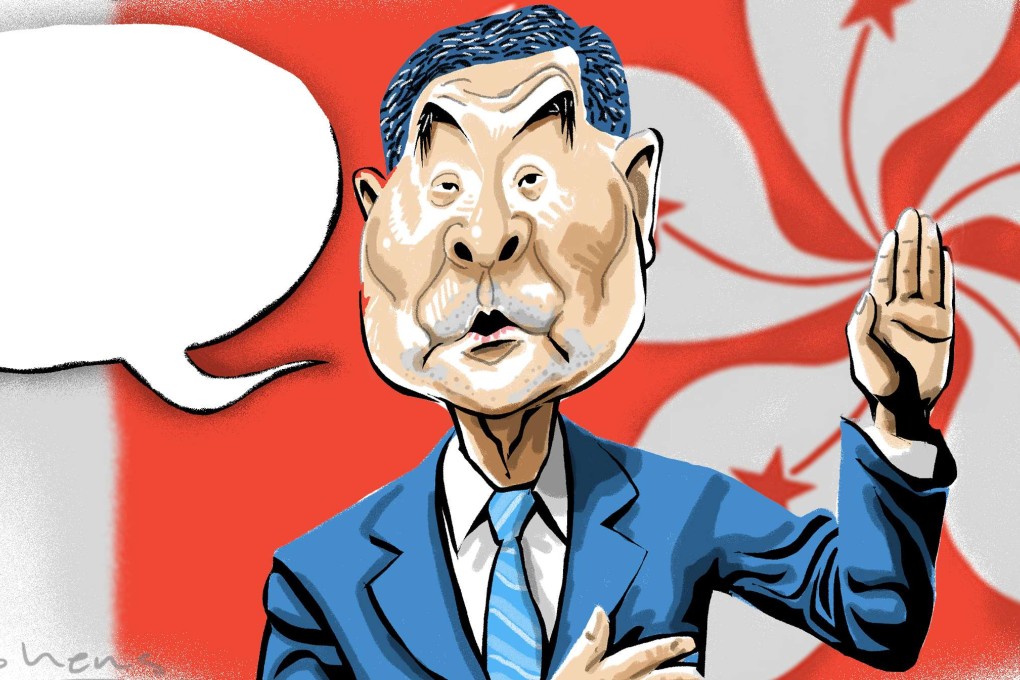Advertisement
How does Hong Kong’s chief executive fail the test of sincerity? Let us count the ways...
Shen Jian says applying the government’s logic, the chief executive’s own oath would be judged below par
Reading Time:4 minutes
Why you can trust SCMP


Advertisement
A writ has even been filed with the High Court, arguing that Leung Chun-ying’s oath was therefore invalid. That case will almost surely fail, but there is another case to be made about why the chief executive’s oath was invalid: not because he spoke the wrong words, but because he didn’t believe the words he spoke. As the Standing Committee of the National People’s Congress made clear in its interpretation of Article 104 of the Basic Law, “The oath taker must sincerely believe in and strictly abide by the relevant oath prescribed by law.”

After Leung Chun-ying, Beijing doesn’t need another Hong Kong leader who only plays hardball
Determining the sincerity of an oath-taker’s belief is the kind of subjective test that would normally bedevil common law judges trained to place themselves in the impartial shoes of the objectively reasonable man. But thanks to our High Court holding up – or being held down by – the Standing Committee’s interpretation, we now know how to measure sincerity. “The fundamental and essential question to be answered in determining the validity of the taking of an oath,” the court ruled, “is whether it can be seen objectively that the person taking the oath faithfully and truthfully commits and binds himself or herself to uphold and abide by the obligations set out in the oath.”
Leung has shown as much contempt for ‘two systems’ as the two would-be lawmakers have shown for ‘one country’, only with fewer props and less salty language
In the oaths of both the chief executive and legislative councillors, those obligations relate to upholding the Basic Law. For Yau and Baggio Leung, the court found that waving their banners and shouting profanities showed that they were not truthfully committed to the “one country” part of the “one country, two systems” principle espoused in the preamble to the Basic Law. Yau and Baggio Leung would be the first to agree.
But, by the same token, an oath taker would also lack sincerity if he was not truthfully committed to the “two systems” part of “one country, two systems”. He would not be faithful to his oath if he did not bind himself to ensuring, as is also stated in the Basic Law preamble, that “the socialist system and policies will not be practised in Hong Kong”. And he would not be abiding by his obligations if he was not faithful to what the High Court itself stated was our “constitutional foundation”: that under Articles 16, 17, and 19 of the Basic Law, Hong Kong is vested with executive, legislative and judicial power, not some “transcendent” chief executive hovering above each branch of government.
Watch: Leung Chun-ying will not seek a second term
Now that he will not have a second term by which to be judged, Leung Chun-ying, one could argue, has shown as much contempt for “two systems” as the two would-be lawmakers have shown for “one country”, only with fewer props and less salty language. Article 16 of the Basic Law requires Hong Kong to conduct administrative affairs “on its own”, yet just hours after the 2012 Lamma ferry disaster, Leung was inviting mainland authorities – which ultimately did nothing – to join the rescue effort.

Advertisement